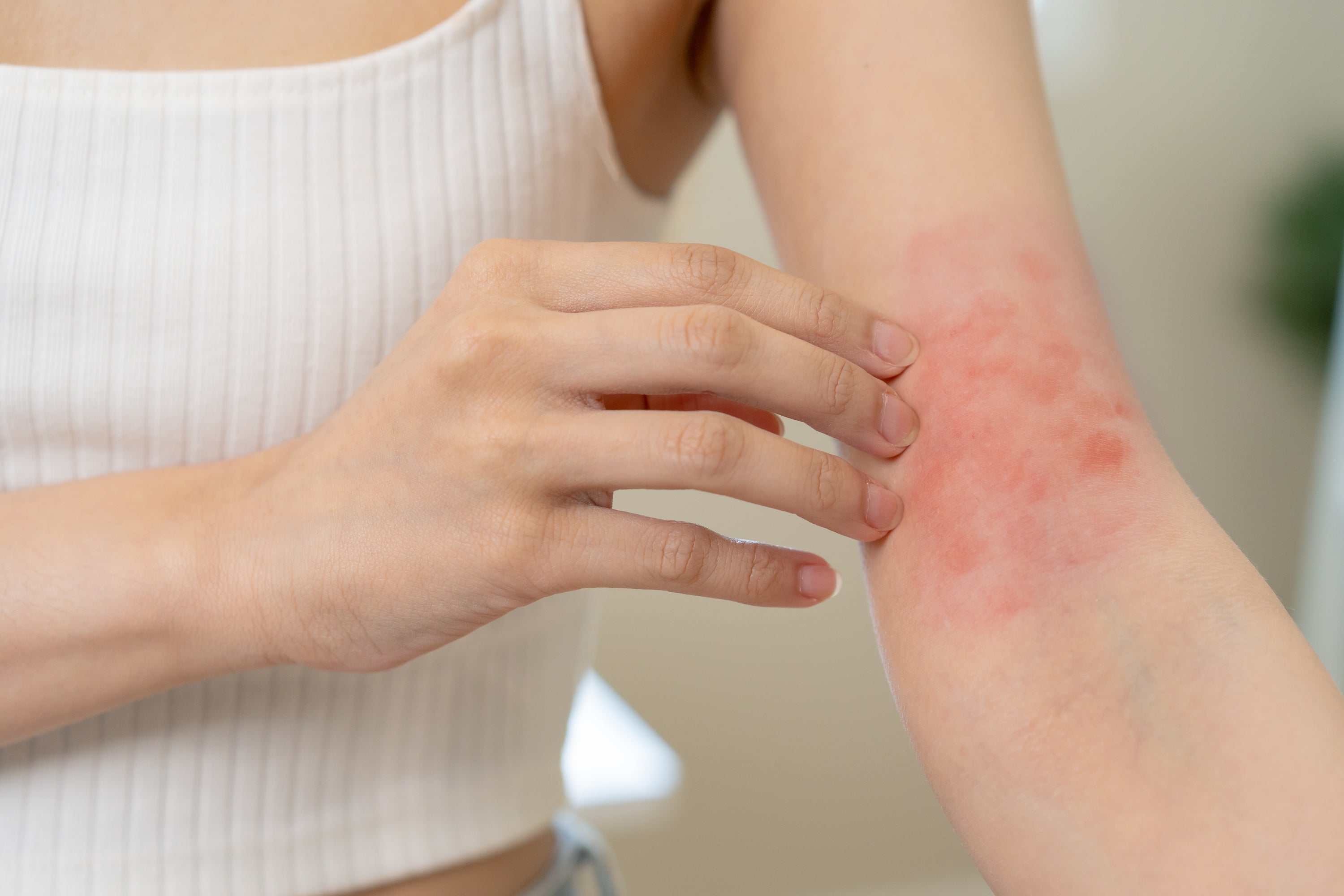20% of children and 10% of adults in the UK suffer from eczema
20% of children and 10% of adults in the UK suffer from eczema.
The classic symptoms of eczema are dry, itchy and red/angry skin. Eczema can also become infected, causing yellow-crusting and weeping skin.
There are different types of eczema - the most common is called atopic eczema (also known as atopic dermatitis). Most people refer to atopic eczema simply as eczema. Other types of eczema include contact eczema (due to irritation or an allergic reaction from chemicals coming in contact with the skin), asteatotic eczema (from very dry skin, usually in older people) and seborrhoeic eczema (due to a yeast infection).
Atopic eczema usually starts in childhood but can also start in adulthood. It typically starts on the cheeks in babies or the creases of the arms and legs in older children. Eczema can be very extensive and affect the whole body. Some people only have eczema in certain places, such as the hands or genitals.
Eczema is a type of inflammation of the skin - where the immune system becomes over active. This leads to red and angry skin. The main treatments for inflamed eczema therefore focus on reducing the drive of the immune system. Steroid creams are the most commonly prescribe anti-inflammatory medication.
Eczema has a variety of causes. Genetic changes in our DNA can predispose people to eczema. The biggest risk factors for eczema is if someone in your direct family has eczema. A gene called Filaggrin is the most common genetic cause of eczema. Filaggrin form part of the outer layer of the skin, which traps moisture and creates a barrier against dust, pollen and other chemicals. When the skin's barrier is weakened these chemicals can penetrate into the skin. The body responds with inflammation, leading to red and angry skin.
Certain things can trigger eczema, causing flares of inflammation. Dust, pollen and food are all known to trigger eczema. Sometimes eczema can be caused by ingredients in creams or cosmetics, which is called a contact allergy. Triggers can be identified by questions from your Dermatologist and allergy testing.
